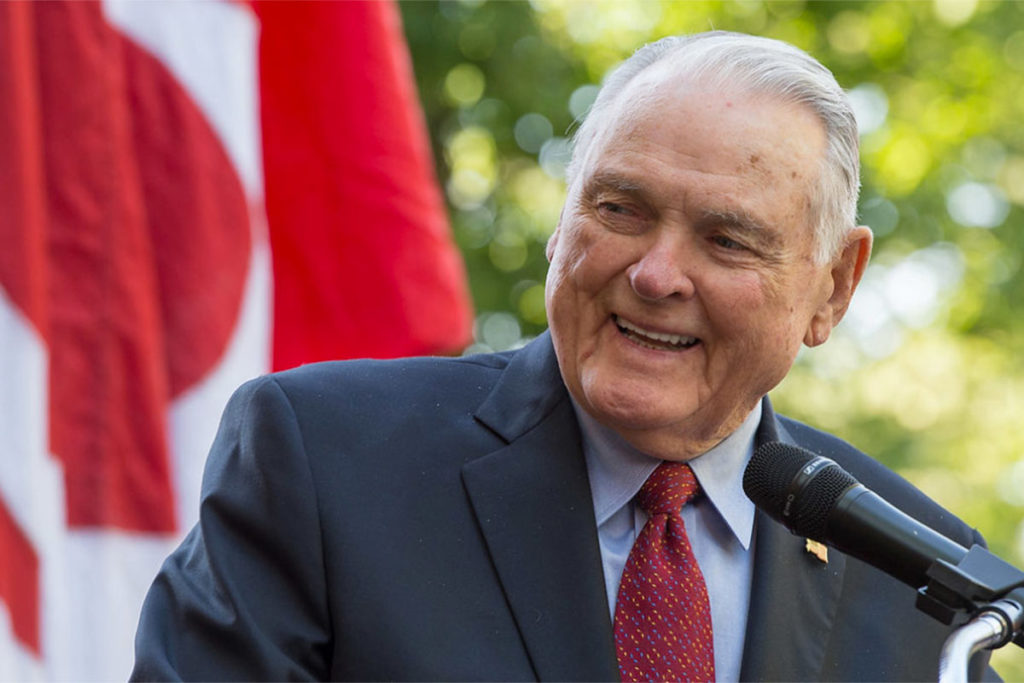Legendary sports broadcaster and 1954 WSU grad Keith Jackson never forgot his roots.
Widely considered the voice of college football, Jackson spent more than 40 years criss-crossing the globe with the ABC television network but remained a strong supporter of WSU throughout his life.
Jackson Hall on the Pullman campus is named in his honor, and he was instrumental in building support to construct the Lewis Alumni Centre. Over the years, he has given more than $1 million to WSU primarily in support of Murrow College and the university’s athletics department.
He died Friday night at age 89.
Murrow College has produced a digital memorial to Jackson, which includes photos, video and an interactive timeline of his career.
Jackson became the definitive voice of college football. Broadcast great Bob Costas has described Jackson as the voice of college football in the same way that Vin Scully has defined the voice of baseball and Jim McKay had long been the iconic voice of the Olympic Games.
Sports Illustrated, in a 1987 profile, called Jackson “an original in a business overrun with carbon copies.” His play-by-play announcing was so memorable that today’s sportscasters refer to colleagues who borrow Jackson’s trademark phrases, such as “Fuhhhm-bullllll,” or “Merciful goodness, six points just went a-wastin’,” or “They’re rockin’ and a-sockin’ and a-whackin’ and a-crackin'” as practitioners of KJ-ology.

For more than 40 years (1966–2006), Jackson enjoyed a celebrated broadcast career with ABC Sports. During his tenure with the network, he was the first play-by-play announcer on Monday Night Football and a fixture on ABC’s Wide World of Sports, covering 10 different Olympics including the ill-fated 1972 games in Munich. Jackson’s voice could be heard covering a wide range of sports from NBA Basketball, to auto racing and Major League Baseball. During coverage of the amateur boxing championships in Cuba, Jackson interviewed a ringside fan by the name of Fidel Castro.
But Jackson’s true legacy lies in announcing college football. He coined the term “The Big House” for Michigan’s stadium and christened the Rose Bowl “the granddaddy of them all.”
Jackson’s distinctive delivery and “down to earth” manner have been compared to that of Edward R. Murrow. Both Jackson and Murrow are graduates of the WSU Department of Speech, a precursor to the Murrow College.
Below is a video from WSU Libraries of the 1958 matchup between the Cougars and Stanford, featuring the play-by-play talents of Jackson early in his announcing career. The 40-6 win remains the largest margin of victory over the Cardinal by a Washington team.
[youtube https://www.youtube.com/watch?v=Ou44_2L7NhE&w=560&h=315]





